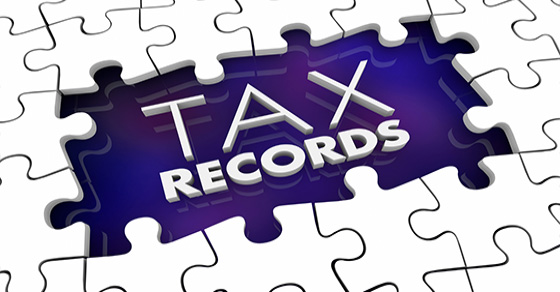Employee Retention Tax Credit Expansion
The Consolidated Appropriations Act (CAA) was signed by President Trump on December 27, 2020. The expansion of the Payroll Protection Program (PPP) loans and tax-deductibility of expenses paid with the first PPP loan received the most fanfare. Also included in the CAA was the expansion of the Employee Retention Tax Credit (ERTC). If the eligibility requirements are met, businesses could be entitled to significant credit amounts. There are separate eligibility requirements for 2020 and 2021.
Deductibility of business meals provided by restaurants in 2021 and 2022
You’ve probably heard that the recent stimulus legislation included a provision that removes the 50% limit on deducting business meals provided by restaurants in 2021 and 2022 and makes those meals fully deductible. Here are the details.
The next estimated tax deadline is January 15 if you have to make a payment
If you’re self-employed and don’t have withholding from paychecks, you probably have to make estimated tax payments. These payments must be sent to the IRS on a quarterly basis. The fourth 2020 estimated tax payment deadline for individuals is Friday, January 15, 2021. Even if you do have some withholding from paychecks or payments you receive, you may still have to make estimated payments if you receive other types of income such as Social Security, prizes, rent, interest, and dividends.
The Consolidated Appropriations Act brings COVID-19 relief (and more) to individuals
President Trump signed into law billions of dollars in long-awaited COVID-19 and economic relief. The relief package is part of the nearly 5,600-page Consolidated Appropriations Act (CAA), which also contains numerous other tax, payroll and retirement provisions. Here are some of the provisions most likely to affect individual taxpayers.
How can your business benefit from the Consolidated Appropriations Act?
The Consolidated Appropriations Act of 2021 (CAA) was signed into law in late December. The sprawling legislation contains billions of dollars in additional stimulus funding in response to the COVID-19 pandemic, as well as numerous unrelated provisions. Let’s take a closer look at the provisions that are most likely to affect your company’s bottom line.
Steer clear of the wash sale rule if you’re selling stock by year end
Are you thinking about selling stock shares at a loss to offset gains that you’ve realized during 2020? If so, it’s important not to run afoul of the “wash sale” rule.
Tell Congress to allow PPP expense deductions for small businesses
Unless Congress acts soon, many small businesses may be hit with an unexpected tax bill related to PPP loans. Join us in supporting the AICPA’s efforts to push for deductibility of PPP-funded expenses! Take action by writing to your Congressman to request PPP expense deductions be allowed. To make it easy, the AICPA has drafted an email that you can use.
Update on Taxation of Payroll Protection Program (PPP) Loan Forgiveness
On Nov. 18, 2020, the Internal Revenue Service released additional guidance regarding the deductibility of expenses paid using proceeds from a PPP loan. The new guidance states that if a taxpayer received a PPP loan and paid or incurred usually deductible expenses with the loan proceeds, those expenses are not deductible if the taxpayer has a reasonable expectation that they will receive forgiveness. The expenses paid for with PPP loan proceeds are not deductible in the year paid even if forgiveness has not been achieved or applied for by the end of the taxable year. In other words, the expenses are not deductible on taxpayers’ income tax returns that include the covered period. The covered period is either the 8- or 24-week period you elected to spend the loan proceeds.
Now more than ever, carefully track payroll records
The subject of payroll has been top-of-mind for business owners this year. The COVID-19 pandemic triggered economic changes that caused considerable fluctuations in the size of many companies’ workforces. Employees have been laid off, furloughed and, in some cases, rehired. There has also been crisis relief for eligible businesses in the form of the Paycheck Protection Program and the payroll tax credit. Payroll recordkeeping was important in the “old normal,” but it’s even more important now as businesses continue to navigate their way through a slowly recovering economy and ongoing public health crisis.
What tax records can you throw away?
October 15 is the deadline for individual taxpayers who extended their 2019 tax returns. (The original April 15 filing deadline was extended this year to July 15 due to the COVID-19 pandemic.) If you’re finally done filing last year’s return, you might wonder: Which tax records can you toss once you’re done? Now is a good time to go through old tax records and see what you can discard.
Why it’s important to plan for income taxes as part of your estate plan
As a result of the current estate tax exemption amount ($11.58 million in 2020), many estates no longer need to be concerned with federal estate tax. Before 2011, a much smaller amount resulted in estate plans attempting to avoid it. Now, because many estates won’t be subject to estate tax, more planning can be devoted to saving income taxes for your heirs.
IRS announces per diem rates for business travel
In Notice 2020-71, the IRS recently announced per diem rates that can be used to substantiate the amount of business expenses incurred for travel away from home on or after October 1, 2020.
Tax implications of working from home and collecting unemployment
COVID-19 has changed our lives in many ways, and some of the changes have tax implications. Here is basic information about two common situations.
Weighing the risks vs. rewards of a mezzanine loan
To say that most small to midsize businesses have at least considered taking out a loan this year would probably be an understatement. The economic impact of the COVID-19 pandemic has lowered many companies’ revenue but may have also opened opportunities for others to expand or pivot into more profitable areas.
If your company needs working capital to grow, rather than simply survive, you might want to consider a mezzanine loan. These arrangements offer relatively quick access to substantial funding but with risks that you should fully understand before signing on the dotted line.
Helping employees understand their health care accounts
Many businesses now offer, as part of their health care benefits, various types of accounts that reimburse employees for medical expenses on a tax-advantaged basis. These include health Flexible Spending Accounts (FSAs), Health Reimbursement Arrangement (HRAs) and Health Savings Account (HSAs, which are usually offered in conjunction with a high-deductible health plan).
















